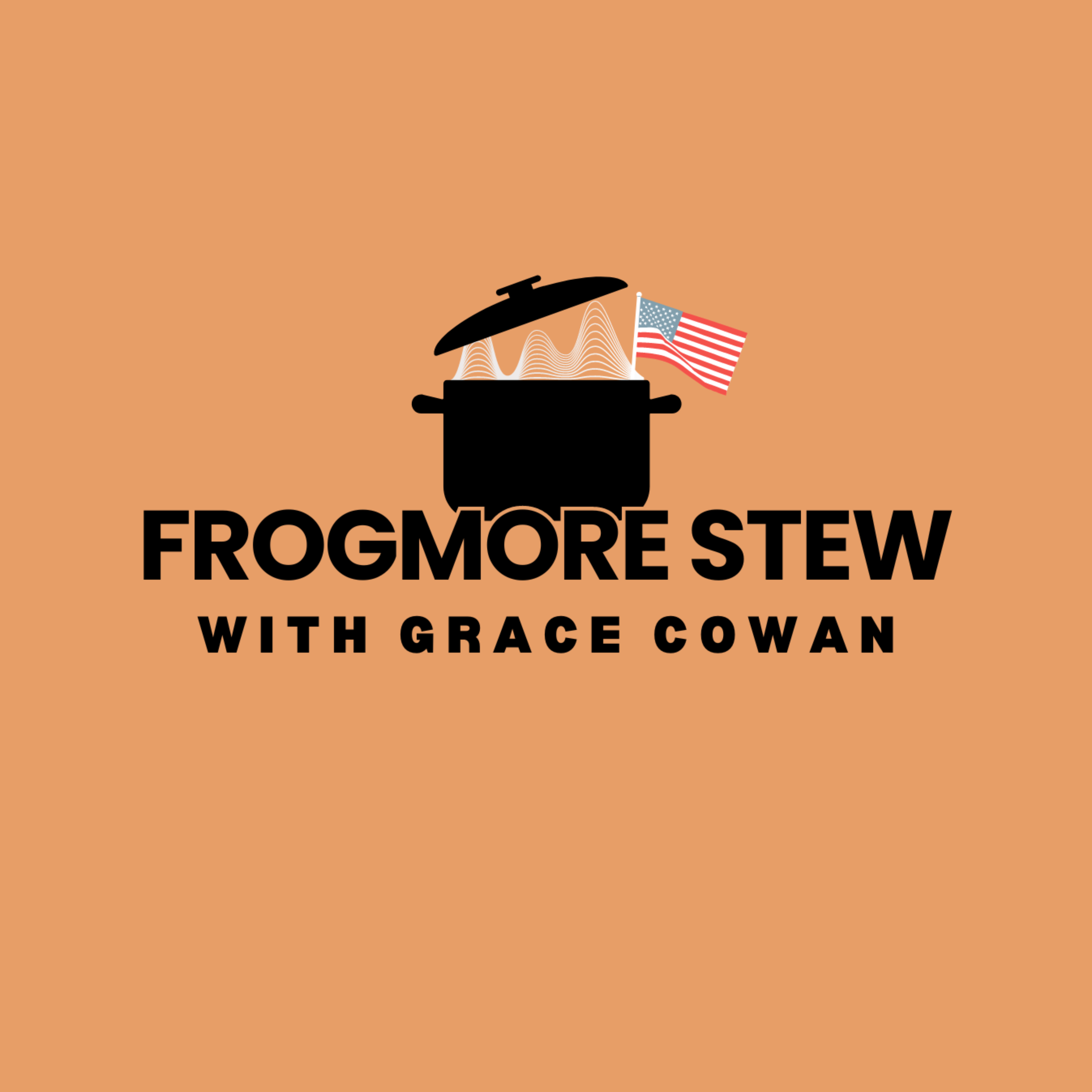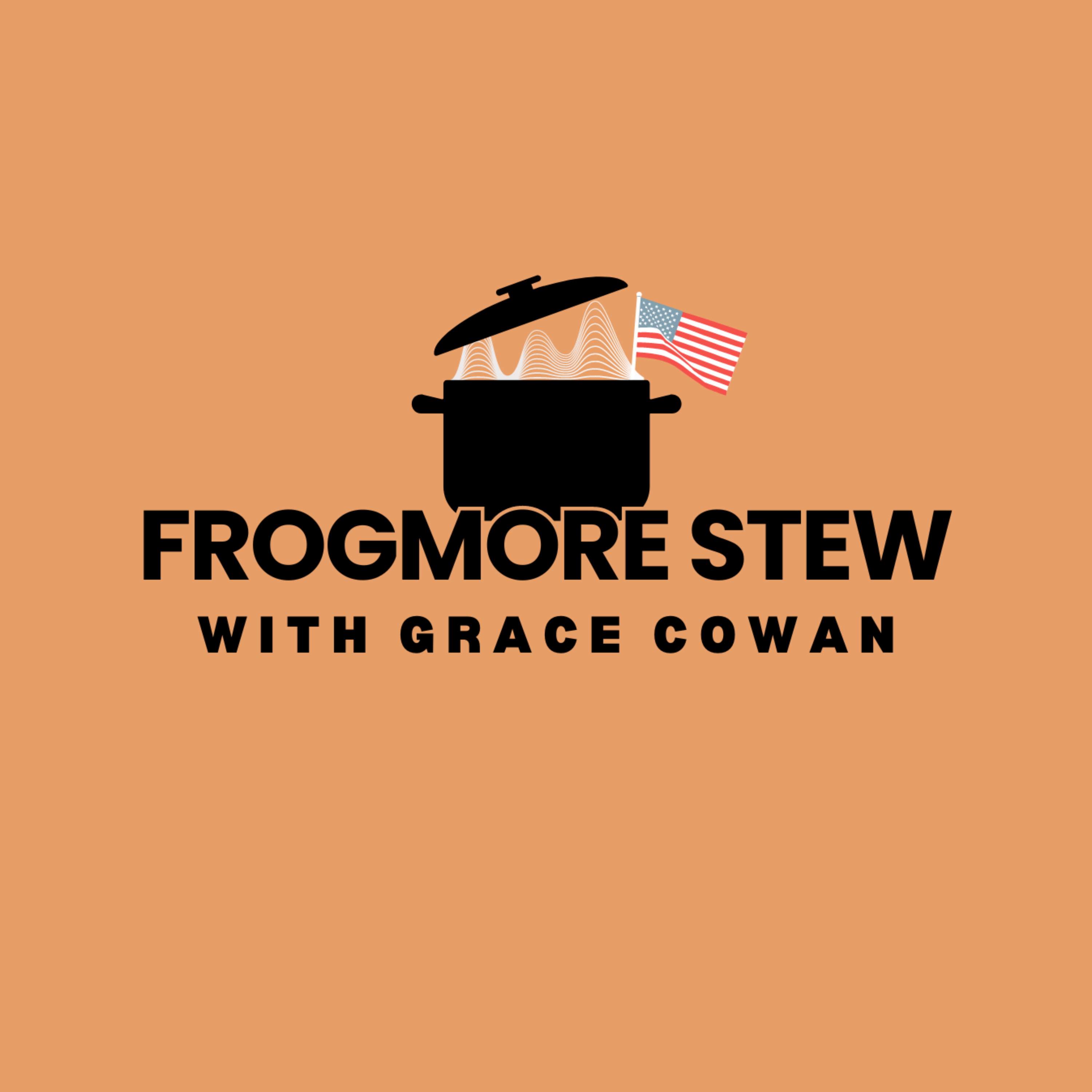Agreement or Alignment?
In this episode, Grace examines the psychological reasons for leaning conservative or progressive. She explores the characteristics of the mindsets and their impact on political affiliations. Grace emphasizes the fluidity of American political identity, the importance of authentic political engagement, and the distinction between agreement and alignment in fostering a united society.
00:00 Exploring the Psychological Roots of Political Ideologies
00:54 Understanding Conservative vs. Progressive Mindsets
04:27 The Historical Evolution of American Political Parties
08:08 The Great Party Switch and Its Impact on American Politics
08:46 The Role of Key Figures in Shaping Modern Political Polarization
09:28 The Power of Political Messaging and Voter Psychology
10:53 Navigating the Current Political Landscape and the Path Forward
Copyright 2024 Grace Cowan
Transcript
Last week, we talked about the beginnings of the two ideologies for our country, and they're still essentially the foundational bedrocks of our political system. But where I find it to be interesting is to break down the psychology of why we each veer to one of those two types. It has a lot to do with how we instinctively react to things around us, like our comfort level with risk, or our perception of fear, our ability of self reflection, how we satisfy the fulfillment of our individual needs, and when we look at each other through our lenses, what we come to view as our shared values.
Grace:Those fundamental instincts in each of us can be broken down into two categories, conservative and progressive. And that doesn't just mean politically, it's in our everyday decisions. So let's look at what the meaning of those two terms are both in worldview and politically before we assign them to the Republicans and the Democrats.
Grace:Conservative and progressive mindsets have been studied for a long time. And there are both conservative minded people and progressive minded people all around the world. This is not unique to us. And these tendencies are typical across all nations. But we also have to remember that most people are more nuanced than these descriptions allow for. Brains that tend to lean conservative are more prone to fear. Many that follow conservative platforms are drawn to it because it serves to reduce fear, as in a strong military, and it reduces anxiety from fear, as in safe suburbs and police support. And it simplifies uncertainty, like in how the Constitution should be strictly interpreted.
Grace:Conservatives tend to have strong religious views because that provides answers to many of the open ended questions. And they're able to justify inequities in society through their view of economics, that everyone has the ability to pull themselves up by the bootstraps. They believe that democracy exists to provide citizens with maximum liberty and unencumbered, To be able to pursue their self interest without being forced into a commitment to the interest of the whole. And they feel that as much as possible, things should be privatized. Business, healthcare, toll roads, bridges, parks, schools. The private sector should provide for the needs of the people with limited governmentt oversight. Private. That's a term that relates to conservative thinking.
Grace:On the other end are the liberals or the progressives, and they tend toward inclusivity, so think immigration and social justice. And they feel it's important to consider the truths of others, not just their own. Think diversity. They believe in a fundamental responsibility of government to the people.
Grace:So think social programs and social equity, and they believe in strict separation of church and state. Things like same sex marriage and abortion. They believe that democracy depends on citizens taking responsibility for each other. Their moral obligation to protect and empower all citizens equally.
Grace:They believe in public resources that are necessary for everyone to be able to create a robust private business. Resources like education, healthcare, research, roads, bridges, clean water and air, safe food, parks. These are things that in their belief, the government should fund. This is a public outlook on how the country should run.
Grace:Both groups use different terminology to describe themselves. Conservatives are more likely to say they are people of honor. duty. They're religious and patriotic. And liberals tend to describe themselves as compassionate, trusting, upbeat, and optimistic.
Grace:So all of those words are very emotional and they tie our feelings into our morals and our view of the world and how we should respond to people we have never met. But whether conservatives or progressives in the U. S. align with which party hasn't always been the same. The parties have essentially flip flopped in ideology over time. And the place to begin to understand this is at the start of the Civil War.
Grace:Republicans controlled the majority of Northern states. The party looked to expand and spread out and encouraged people to settle in the West. There was a funding for a new transcontinental railroad and state universities. Abolitionists, and the issue of human enslavement was central to many Republicans.
Grace:Democrats represented a range of views, but they shared a commitment to Thomas Jefferson's concept of a farming or laissez faire society, and they viewed the federal government as the enemy of individual liberty. Because most Democrats were in southern states, they were fighting to keep slavery legal.
Grace:After the Civil War, the Republican Party controlled the government, and by guaranteeing freedom through the 13th Amendment, Republicans garnered loyalty from most of America's black population, and this infuriated Democrats. But Republican Northern industrialists had grown rich from the war, and many of them entered politics afterward.
Grace:These new wealthy politicians did not feel they needed to continue to support the fight for the rights of black Americans . And by the 1870s, many in the Republican party felt that they had done enough for black citizens and stopped all efforts to reform the Southern states. The South was left to its own devices without federal government oversight, and it stayed solidly Democrat. As time went on, the Republican party of the North continued to be dominated by wealthy businessmen, which led them to favor the Jeffersonian laissez faire policies that supported big businesses, meaning no oversight, the same ones that the Democrat Southern slave owners favored before the civil war.
Grace:These policies were effective when the economy was booming, but they were disastrous when it wasn't. And So when the economy crashed in 1929 and the great depression hit the Republican president, Herbert Hoover opted not to intervene laissez But that put him in the fire of the American masses. Franklin Delano Roosevelt, a Democrat, campaigned on a promise of government intervention, of financial assistance, and concern for the welfare of the people and won the 1932 election by a landslide. It was FDR's campaign policies that were one of the causes of the shift in party ideologies. Republicans opposed everything about FDR's government. Primarily, they saw the growth of large government as harmful.
Grace:Did you follow that? When the Southerners were making a lot of money because of enslaved labor, they didn't want the federal government telling them what their businesses could do. But when the Northern industrialists needed the federal government to assist them in starting their companies before the Civil War, they supported a strong federal government. After the Civil War, the Southern Plantations Couldn't make money any longer, and they needed a federal government to assist them, but the industrialist were booming, so they wanted the federal government to butt out.
Grace:It wasn't until the 1950s and sixties that race and equality really began to return to the center of politics. And to be clear, race wasn't necessarily identified as a party platform yet. It was more of a regional issue. Southern Democrats and Southern Republicans both opposed the civil rights movement and Northern Democrats and Northern Republicans began to support legislation as a civil rights movement picked up steam.
Grace:In the 50s the identities of the party were that Republicans were the city elite. They were the business owners in the upper crust, and the Democrats were the working class, the unions, the farmers. In 1964, President Lyndon Johnson, a Democrat, signed the Civil Rights Act into law. In that same year's election, Republican candidate Barry Goldwater publicly opposed the new law, arguing that it expanded the power of the federal government to a dangerous level. It was this argument that truly began the great party switch.
Grace:Black voters who had historically been loyal to the Republican party because of the party's role in ending slavery, realized that Republicans now prioritize business and the status quo, and they saw the Democrat party advocates for equality and justice.
Grace:There are two pretty significant figures who really set the stage for the current party's polarization, particularly on race and gender. One is Leigh Atwater, who we covered in an earlier episode, and I urge you to listen to if you haven't. And the other is Phyllis Schlafly, who we'll cover in an upcoming episode.
Grace:Between the two of them, they created the foundation for what would become strict allegiance to party. It's important to remember too, that this didn't happen overnight. They just laid the foundation for it. Throughout the sixties, the seventies, the eighties, and even the nineties, there were conservative Democrats and liberal Republicans.
Grace:Party affiliation wasn't as commanding and demanding as it is now. What both Lee Atwater and Phyllis Schlafly tapped into though, was the psychology behind how the brains of conservative and progressive voters could be penetrated to drive a belief system founded in associating your moral beliefs. So your party knows they will lose your interest and attention if they try and explain all the dirty details of how the sausage is made.
Grace:They go to great lengths to ensure that you connect your moral compass with the wording of the policies they want you to support. Here's an example from each perspective.
Grace:When conservative politician refers to small government, that refers to a dislike of using public funds to provide public resources. It's a simple way to say, I don't support the public resources that the government currently provides. I think a private business should do that.
Grace:And when a progressive refers to regulations, they are saying, they want, Limitations on what a company can do. It's a simple way to say companies need to ensure that they are looking out for the people they are serving and employing.
Grace:But here's the catch. American politics is fluid. American voters can have a new experience that completely upends their political stripes. Political motivation can actually change. Authenticity really does matter. Language matters. Many people are so disgusted with both parties right now that we have a higher percentage of people that identify as independent rather than Democrats or Republicans.
Grace:Both parties are really good at crafting slogans that speak to our mass identity and the language we understand simplifying our divisions and mobilizing our emotions. This us versus them isn't a new thing, but it is working better now than it ever has. What we need is alignment.
Grace:One of my favorite writers is Adam Grant, and here's something he said that I think we could take with us as we work to make the more perfect union our forefathers envisioned.
Grace:Agreement is having identical opinions. Alignment is having shared values. Agreement is taking the same path. Alignment is heading in the same direction. Closeness is a matter of commitment, not consensus.

